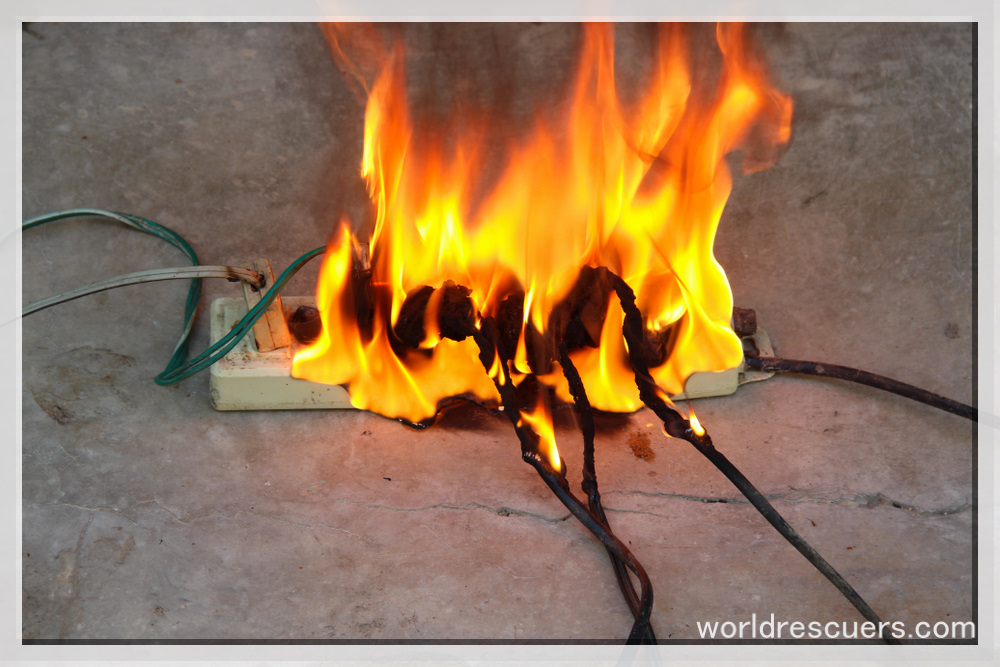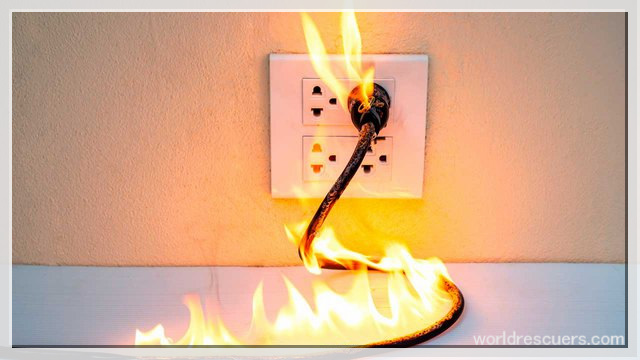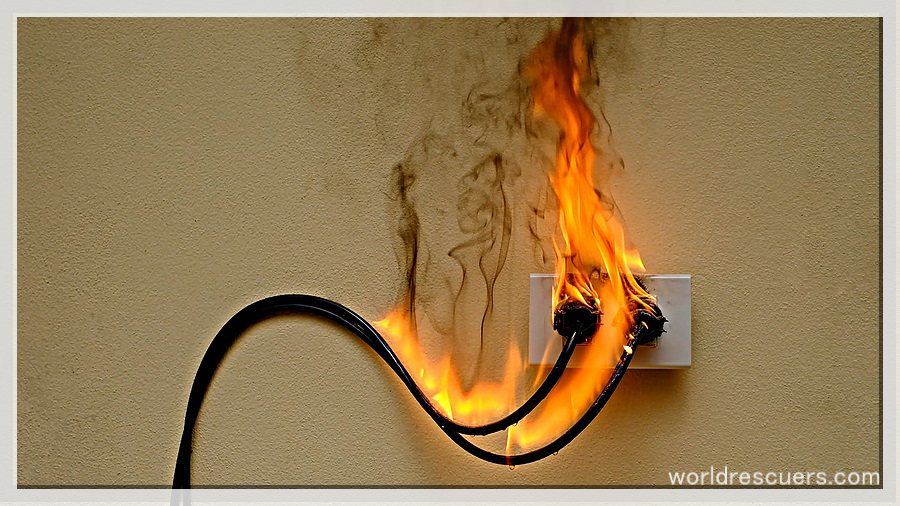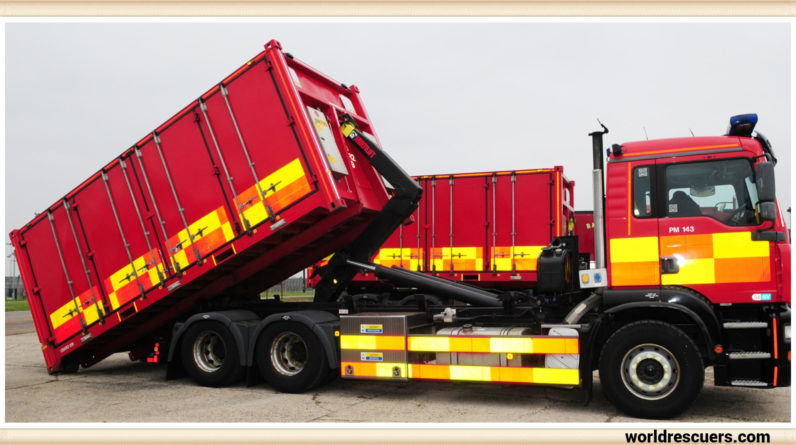
Summary
Recap of Key Points In this comprehensive guide, we’ve explored the critical aspects of electrical fire hazards, fire causes, fire prevention, safety measures, and the importance of fire safety. To safeguard your home or workplace, it’s crucial to understand the risks associated with faulty outlets, old appliances, electric wires, circuit breakers, and wiring issues.
Commitment to a Fire-Safe Environment Preventing electrical fires requires a commitment to a fire-safe environment. Regular inspections, maintenance, and upgrades, coupled with proper safety measures and education, can significantly reduce the risk of electrical fires. Remember, safety should be a priority for everyone.
Electrical fire hazards represent a significant threat to residences and workplaces globally. Understanding the causes, prevention methods, safety measures, and real-life examples of electrical fires is crucial for ensuring the safety of people and property. In this comprehensive guide, we will delve into the world of electrical fire hazards and equip you with the knowledge and tools necessary to protect your environment effectively.

Unveiling the Causes
Over time, electrical components, including wiring, can degrade, resulting in exposed wires or damaged insulation. Furthermore, overloading circuits with an excessive number of devices or appliances can produce excessive heat, potentially leading to wire overheating and the initiation of a fire. Old appliances with worn-out or damaged wiring can transform into potential fire hazards.
Simple mistakes like using faulty outlets, overloading extension cords, or improperly installing electrical components can have disastrous consequences. Upgrading Outdated Electrical Systems Older electrical systems may not meet current safety standards. Raising awareness about safe electrical practices is essential in reducing these errors and minimizing fire risks.
Preventing Electrical Fires
Regular Inspections and Maintenance To prevent electrical fires, regular inspections and maintenance of your electrical systems are paramount. Ensure that qualified professionals check your wiring, outlets, and appliances periodically. Address any issues promptly, such as replacing damaged wires or outlets, to eliminate potential fire risks.
Faulty Wiring and Overloads One of the primary causes of electrical fires is defectivering and overloads. Upgrading to modern electrical systems with circuit breakers and surge protectors can significantly reduce the risk of fires. These devices provide enhanced protection by interrupting the electrical supply in case of overloads or short circuits.
Proper Use of Surge Protectors and Circuit Breakers Surge protectors and circuit breakers act as your first line of defense against electrical fires. Surge protectors shield your devices from voltage spikes, while circuit breakers cut off power in case of a fault. Ensure that these protective devices are in good working order and use them correctly to prevent electrical fires.

Safety Measures and Best Practices
Fire Extinguishers and Fire AlaAlarmsry hohomesnd woworkplaceshould be equipped with fire extinguishers and fire alarms. Fire extinguishers can swiftly suppress small fires, while fire alarms provide early detection, allowing occupants to evacuate safely. Regularly check and maintain these devices to ensure they function when needed.
Creating an Emergency Evacuation Plan Having a well-thought-out emergency evacuation plan is critical. Designate escape rerroreand assembly points and assign responsibilities to ensure everyone knows what to do in case of a fire. Practice fire drills regularly to reinforce safety measures and improve response times.
Educating Family and Staff Education is a powerful tool in fire prevention. Educate family members or employees about the risks associated with electrical fires and how to prevent them. Ensure they understand the importance of safety measures and how to use fire safety equipment effectively.
Case Studies and Real-Life Examples
Learning from Past Electrical Fire Incidents Examining past electrical fire incidents provides valuable insights into the causes and consequences of such events. Analyzing case studies can help identify common factors and mistakes to avoid, making it easier to prevent future occurrences.
Success Stories of Fire Prevention Celebrate the successes in fire prevention. Highlight cases where prompt action and adherence to safety measures prevented electrical fires. These success stories serve as inspiration and emphasize the effectiveness of preventive measures.
Expert Interviews and Insights Experts in the field of electrical safety can provide valuable insights and recommendations. Conduct interviews with professionals who specialize in electrical safety to gather expert advice on preventing electrical fires and enhancing fire safety awareness.
FAQ’s
What to do if you have an electrical fire?
If you have an electrical fire, immediately cut off the power supply and use a Class C fire extinguisher to smother the flames.
What can cause an electrical fire?
EleFaulty wiring, overloaded circuits, damaged applsystems or outdated electrical systems. Whats can cause electri hazards fire?
An electrical fire is a fire that originates from faulty electrical components, wiring, or equipment, often triggered by electrical malfunctions or overloads.
How do you know if an electrical fire is starting?
You can identify the start of an electrical fire by noticing unusual smells, sparks, smoke, or flickering lights, along with tripped circuit breakers or outlets that feel warm to the touch.
Highly trained Assistant Fire Chief dedicated to public safety and awareness for the past 16 years. Effective leader who remains steady during times of emergency, while directing and motivating team members throughout crises.






